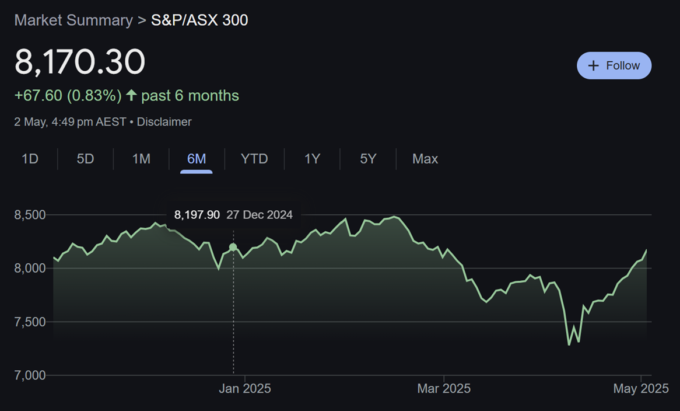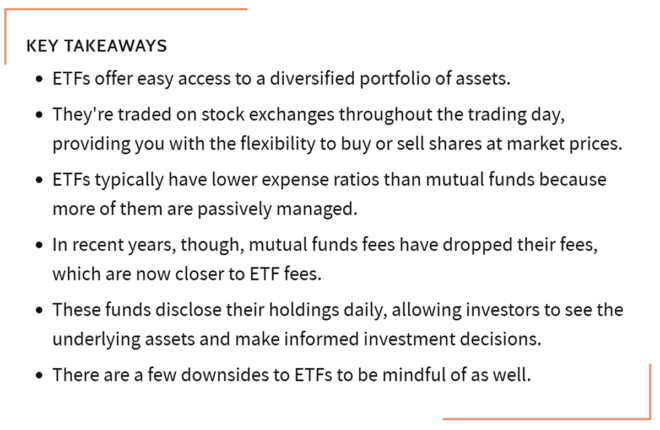Exchange Traded Funds (ETFs) allow investors in the private wealth sector to make asset allocation decisions that are usually reserved for institutional investors, Bellmont Securities’ Michael Block writes
According to Monty (not my dog) the future of wealth management is here, and it is ETFs
I work in wealth management and I can tell you that ETFs are a gift from g-d.
Let me relate a recent war story to you.
We manage a growth portfolio that is wholly made up of AUTs (Australian Unit Trusts) and we wished to implement a very simple portfolio change where we switched 25 per cent of our global equities exposure from unhedged global equities to hedged global equities.

We could not afford to be out of the equity market for a few days let alone a week when equities are so volatile. We could however take the calculated risk of not being exposed to bonds.
If I was back in industry super land, this could be implemented quickly and easily with a simple instruction to our currency overlay manager to adjust our currency hedge ratio. A matter of minutes and no underlying equities assets would have been bought or sold, so no CGT (capital gains tax) consequences.
Unfortunately, in managed accounts land it was a real mission to accomplish this currency hedge adjustment, and all because we did not hold some ETFs.
A Classic Horror Story
Let me illustrate our implementation by recounting each painful detail.
Step 1: redeem from all domestic and global bonds strategies
Step 2: wait for the sale proceeds to arrive
Step 3: use the proceeds to buy hedged global equities and on the same day sell unhedged global equities
Step 4: wait for the sale proceeds to arrive
Step 5: use the sale proceeds to buy back bonds exposure
The reason why we needed to undergo such a long and convoluted implementation to add currency hedging was because we could not afford to be out of the equity market for a few days let alone a week when equities are so volatile. We could however take the calculated risk of not being exposed to bonds.
This is because if we gave the instruction to sell unhedged global equities and then had to wait to receive the sale proceeds before purchasing the hedged equities our portfolio would not be holding equities for a period of time.
Volatility in Equity Markets – Source: Bloomberg
Most of this could have been avoided if only we held some ETFs.
If we had held hedged and unhedged global equities ETFs (as we now do) we could have just sold and bought on the same day and not have had to use such an arcane Machiavellian process.
Bottom line, there are so many advantages of using ETFs that I expect their use to skyrocket within managed account portfolios, especially those with an X factor (thematic ETFs allowing access to granular markets. Yet another step in the democratisation of investing.
Here is what Investopedia has to say.
Source: Investopedia
Just because ETFs have lots going for them does not mean it is all smooth sailing.
Here are some disadvantages of ETFs.
- It is harder to offer fee rebates in ETFs than in AUTs
- Some ETF providers charge fees higher than active managers for their passive offerings in some sectors
- Buying and selling ETFs may give rise to tax consequences (noting that there are also tax consequences for buying and selling AUTs)
My recommendation, as always, is to be discerning.
- For simple, passive portfolios, shop around to get the best fees. Passive ETFs are suitable in sectors where the returns from active management have not justified active fees. [e.g. Large Cap Global Equities]
- If so-called active managers are doing something that is structural and repeatable (and therefore not really alpha) then a smart-beta ETF may be appropriate. Using a smart beta ETF should result in similar gross returns with a fraction of the fees. [e.g. Australian bonds]
- If the same strategy is offered in ETF form for the same fee, then an ETF is preferred
- If there are certain areas where an AUT is better, then use AUTs. However, a portfolio is always better if it holds some ETFs as they provide better liquidity. Enhanced liquidity is a good tool to have when navigating today’s turbulent markets.
The Moral of The Story
Only a Jimmy Numnuts will continue to exclusively use less liquid AUTs and use AUTs with high fees if the same can be achieved with more liquid, cheaper ETFs.
Vive la revolution!
Michael Block is Chief Investment Officer of Bellmont Securities. The views and opinions expressed in this article are those of the author and do not necessarily reflect the views or positions of their employer or of the Investment Innovation Institute [i3].
__________
[i3] Insights is the official educational bulletin of the Investment Innovation Institute [i3]. It covers major trends and innovations in institutional investing, providing independent and thought-provoking content about pension funds, insurance companies and sovereign wealth funds across the globe.




